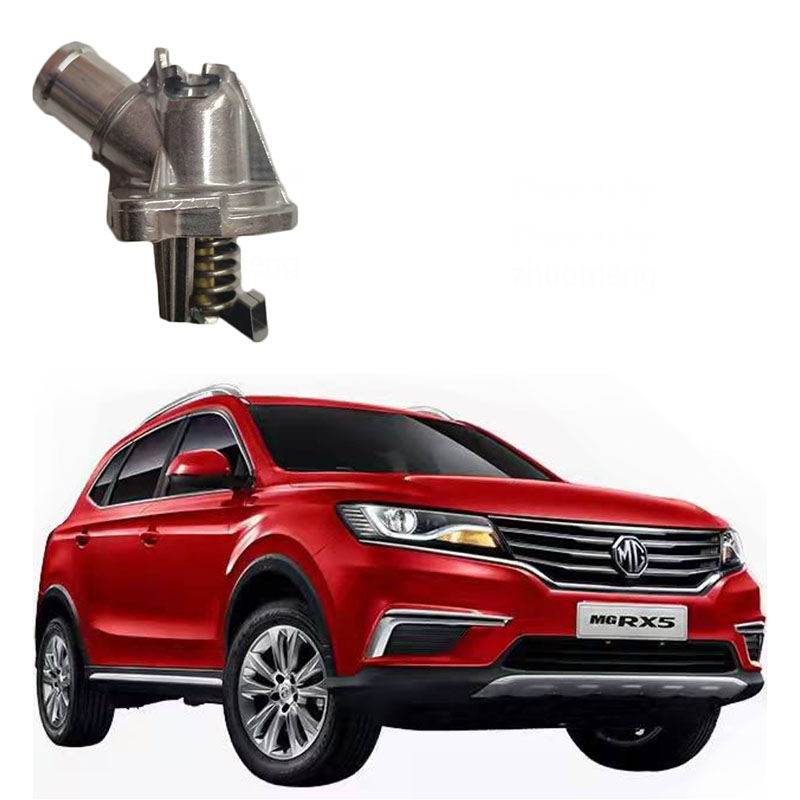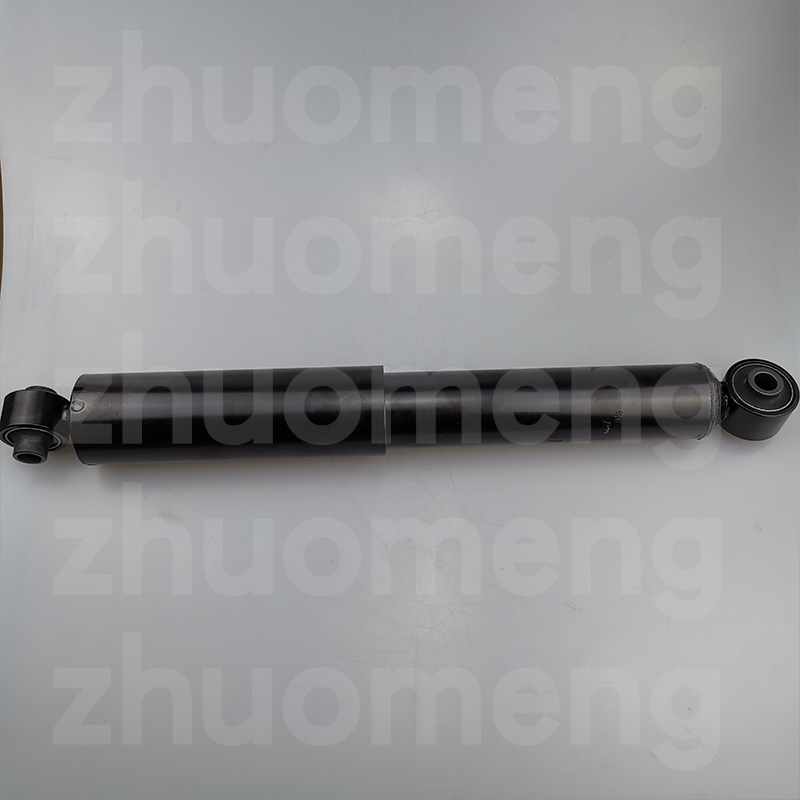OEM China Genuine Mg Parts - SAIC MG 6-18 Steering knuckle (Sheep Horn) 10142280 – Zhuomeng
OEM China Genuine Mg Parts - SAIC MG 6-18 Steering knuckle (Sheep Horn) 10142280 – Zhuomeng Detail:
Products information
| Products Name | Steering knuckle (sheep horn) |
| Products Application | SAIC MG MG 6-18 / RX5 |
| Products OEM NO | 10142280 10142285 10187241 10187242 10187243 10094082 1009408 |
| Org Of Place | MADE IN CHINA |
| Brand | CSSOT / RMOEM / ORG / COPY |
| Lead time | Stock, if less 20 PCS, normal one month |
| Payment | TT Deposit |
| Company Brand | CSSOT |
| Application system | Chassis system |
Mg6-18 front steering knuckle front horn L-10142280 R-10142285
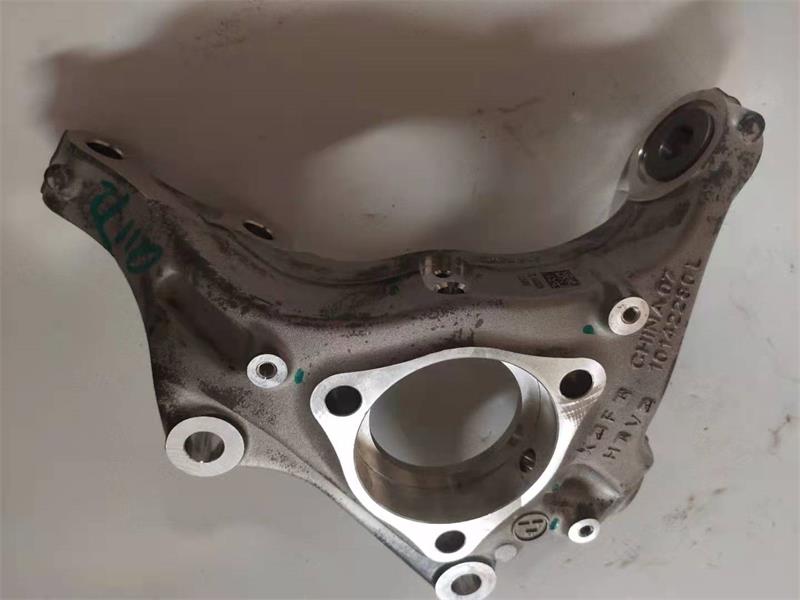
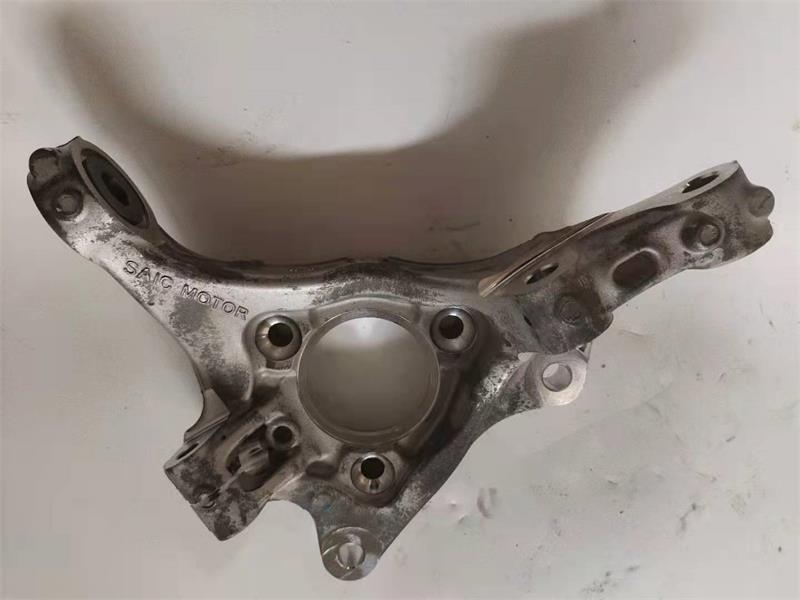
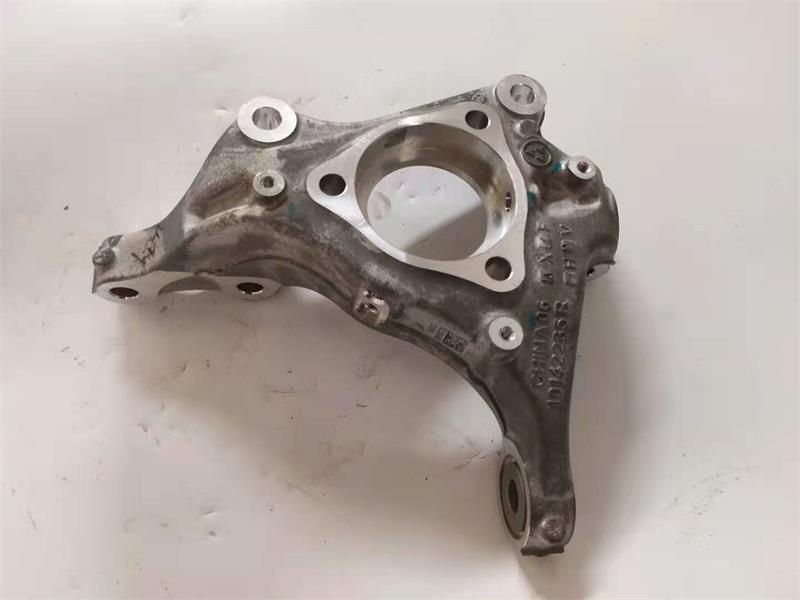
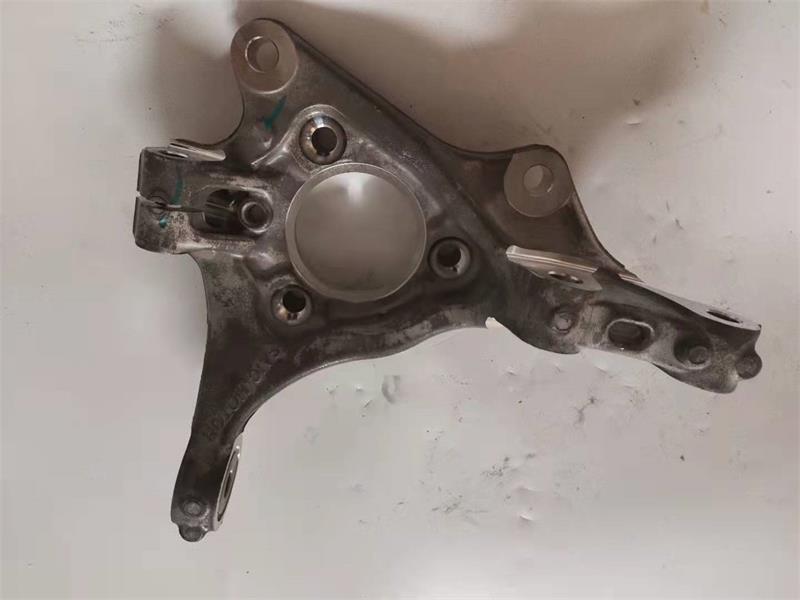
Rx5 front steering knuckle front horn R 10094082
Rx5 front steering knuckle front horn-l 10094081
Rx5 rear steering knuckle rear horn 2WD L 10187241
Rx5 rear steering knuckle rear horn 2WD R 10187242
Rx5 rear steering knuckle rear horn-4wd-l 10187243
Product knowledge
Steering knuckle, also known as “sheep horn”, is one of the important parts of automobile steering axle, which can make the automobile drive stably and transfer the driving direction sensitively. The function of the steering knuckle is to transmit and bear the front load of the car, support and drive the front wheel to rotate around the kingpin to turn the car. When the vehicle is running, it bears changeable impact load, so it is required to have high strength.
The steering knuckle is connected with the vehicle body through three bushings and two bolts, and is connected with the brake system through the brake mounting hole of the flange. When the vehicle is driving at high speed, the vibration transmitted from the road surface to the steering knuckle through the tire is the main factor we consider in our analysis. In the calculation, the existing vehicle model is used to apply 4G gravity acceleration to the vehicle, calculate the support reaction force of the three bushing center points of the steering knuckle and the center points of the two bolt mounting holes as the applied load, and restrict the 123456 degrees of freedom of all nodes on the end face of the flange connecting the braking system.
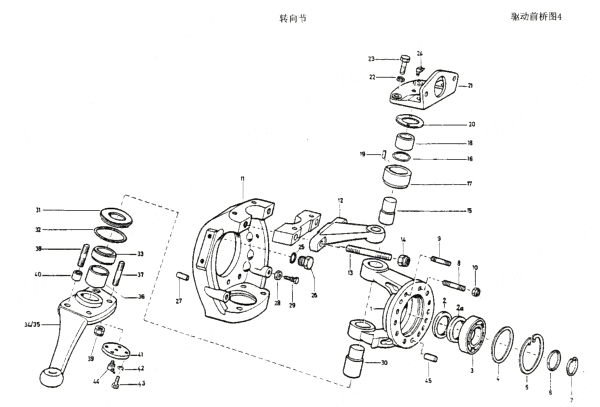
The shape of the steering knuckle is relatively complex, which focuses on the structural characteristics of four types of parts such as shaft, sleeve, disc ring and fork frame. It is mainly composed of three parts: supporting journal, flange and fork frame. The structural shape of the supporting journal is a stepped shaft, which is characterized by a rotating body composed of a coaxial cylindrical surface, a conical surface, a threaded surface, and a shaft shoulder, a transition fillet and an end face perpendicular to the axis line; The flange plate comprises a flange surface, evenly distributed connecting bolt through holes and threaded holes for steering limit; The fork frame .
Product detail pictures:




Related Product Guide:
abide by the contract", conforms to the market requirement, joins in the market competition by its high quality as well as provides more comprehensive and excellent service for clients to let them become big winner. The pursue of the company, is the clients' satisfaction for OEM China Genuine Mg Parts - SAIC MG 6-18 Steering knuckle (Sheep Horn) 10142280 – Zhuomeng , The product will supply to all over the world, such as: Sydney, Florence, Comoros, because of our company has been persisting in the management idea of "Survival by Quality, Development by Service, Benefit by Reputation" . We fully realize the good credit standing, the high quality products, the reasonable price and the professional services are the reason that the customers choose us to be their long-term business partner.
Although we are a small company, we are also respected. Reliable quality, sincere service and good credit, we are honored to be able to work with you!





